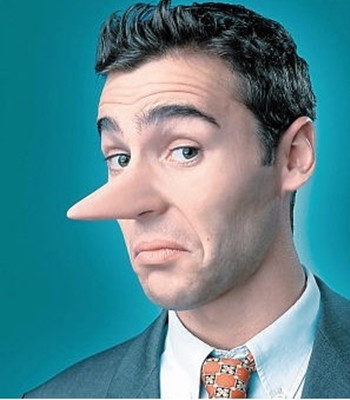As the day wears on, we tend to get weary.
随着一天中时间的慢慢流动,人们往往会显露出疲态。
Now a study finds that as a result we may be more likely to cheat or lie in the afternoon than in the morning.
而现在的一项研究表明正是这一原因导致相比上午,我们更有可能在下午骗人或说谎。
But only if we're usually ethical to begin with.
但这仅适用于原本就品行较端正的人们。
 Scientists showed volunteers patterns of dots on a computer and asked them to tell which side of the screen contained more dots, the right or left.
Scientists showed volunteers patterns of dots on a computer and asked them to tell which side of the screen contained more dots, the right or left.
科学家展示给受试者们计算机上的圆点图案,然后让他们指出左边还是右边的屏幕包含更多圆点。
Here's the kicker: the researchers gave the subjects a higher reward if they selected the right side, even if it was incorrect.
重点在于:无论对错,只要受试者们选择右边,研究人员就会给他们更高的奖励。
And with this incentive, subjects were more likely to cheat in the afternoon than in the morning.
就在这种刺激之下,相比上午,受试者在下午更有可能出现欺骗行为。
In another experiment the scientists showed the subjects fragments of words, and asked them to complete the word.
而在另一项实验中,科学家给受试者们一些单词碎片并要求补全单词。
For example, they might see the last three letters, R, A, L, of a five-letter word.
比如受试者们会看到一个最后三位字母为RAL的五字母单词。
And surprisingly in the morning the participants tended come up with the word "moral" whereas in the afternoon the word of choice was “coral.”
而令人惊讶的是在上午受试者更容易想出道德准则(moral)这样的答案,但在下午却更容易萌生珊瑚(coral)这样的答案。
The researchers also found that people who tend to cheat regularly were just as likely to do so in the morning as in the afternoon.
研究还发现,经常有欺骗行为的人,在上午下午都有可能骗人。
It was the more ethical folks who suffered lapses as the day wore on.
也就是说,那些品行较好的人则会在下午犯错。
So the early bird gets the worm…and the truth.
看来早起的鸟儿不仅有虫吃,还可以享受真话。
 Scientists showed volunteers patterns of dots on a computer and asked them to tell which side of the screen contained more dots, the right or left.
Scientists showed volunteers patterns of dots on a computer and asked them to tell which side of the screen contained more dots, the right or left. Scientists showed volunteers patterns of dots on a computer and asked them to tell which side of the screen contained more dots, the right or left.
Scientists showed volunteers patterns of dots on a computer and asked them to tell which side of the screen contained more dots, the right or left.